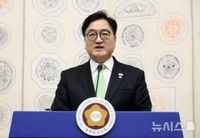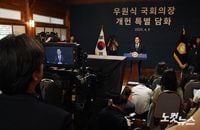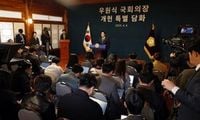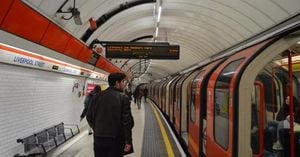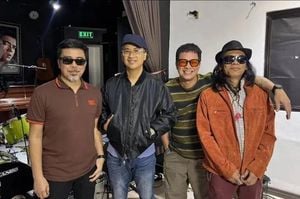On April 6, 2025, National Assembly Speaker Woo Won-shik made a pivotal announcement regarding a proposed constitutional amendment during a special statement at the National Assembly in Seoul. The speaker urged for a referendum on the amendment to be held concurrently with the upcoming presidential election, marking a significant moment in South Korea's political landscape.
In his address, Woo articulated the public's growing desire for change, particularly to address the "imperial presidential system" and the "winner-takes-all" political structure that have contributed to severe political conflicts in recent months. He stated, "The current public sentiment is to change the causes of extreme political conflict, which stem from the concentration of power in the presidency and a political structure that rewards only the victor." This call for reform comes in the wake of a tumultuous period marked by political strife and a recent impeachment.
Woo emphasized the necessity of a constitutional amendment to strengthen the pillars of the separation of powers, which he believes are essential for national sovereignty and unity. He argued that such reforms are crucial to prevent the recurrence of the chaos experienced over the past four months. "This is a demand of the times to transform the hardships faced by the public into an opportunity for a major transition in the Republic of Korea," he remarked during the press conference.
During his statement, Woo also highlighted the importance of addressing the power structure, which he described as the most challenging aspect of the amendment process. He noted that past attempts at constitutional reform have been hindered by the complexities of changing the power dynamics within the government. "We need to break this vicious cycle before the new president's term begins," he stated, underscoring the urgency of the situation.
In addition to proposing the referendum, Woo called for the amendment of the National Referendum Act to facilitate voting for overseas citizens and suggested the establishment of a special committee in the National Assembly dedicated to constitutional amendments. He believes that now is the right time to pursue these changes, as the direction of power distribution is clearer than ever.
Woo's proposal comes after nearly two decades of stalled discussions on constitutional amendments in the National Assembly, which have been ongoing since the 18th National Assembly in 2008. Despite repeated formal discussions, no substantial progress has been made. He remarked, "The principle of checks and balances must be operationalized through the constitution to uphold popular sovereignty." This reflects a broader consensus among the public and political leaders on the need for reform.
As the nation prepares for an early presidential election, Woo's proposal has sparked discussions among various political parties. He has consulted with party leaders prior to making his announcement, indicating a significant level of agreement on the necessity of constitutional reform. "I believe there is a broad consensus on the need for constitutional amendments," he stated, reinforcing the idea that this is a collective effort to address the country's political challenges.
Moreover, Woo highlighted that the urgency for constitutional change has resonated deeply with the public, especially in light of the recent political turmoil. He pointed out that the extraordinary measures taken during this period, while not a fault of the constitution itself, highlight the need for fundamental solutions to prevent similar crises in the future.
In his closing remarks, Woo reiterated that the core objective of the proposed amendments is to distribute power more equitably and to foster national unity through effective collaboration and cooperation among political factions. "The direction of constitutional reform is now clearer than ever, and this is the opportune moment to realize these changes," he concluded.
As South Korea stands on the brink of potential constitutional reform, the coming months will be crucial in determining whether Woo's vision for a more balanced and representative political structure can be realized. The proposed referendum, set to coincide with the presidential election, could be a turning point in the nation's governance and political culture.
